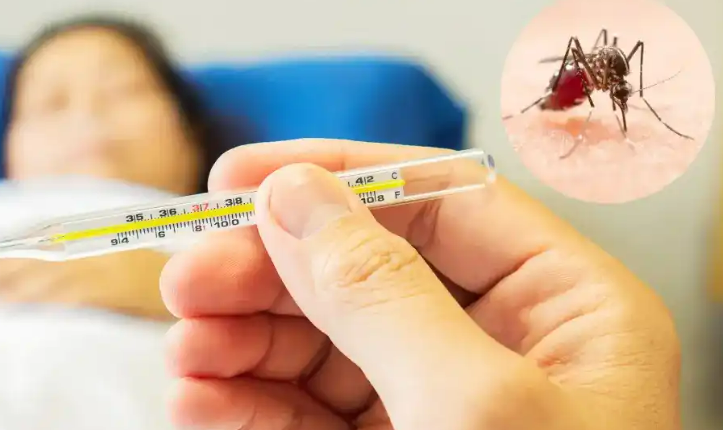Understanding Dengue: Symptoms and Effective Cures
Dengue fever is a mosquito-borne viral infection that has become a significant public health concern in many parts of the world. It is caused by the dengue virus, which is transmitted to humans through the bite of an infected Aedes mosquito. Recognizing the symptoms of dengue and understanding the available cures are crucial steps in preventing severe complications and managing the disease effectively.
1. Common Symptoms of Dengue
Dengue symptoms typically appear 4 to 10 days after being bitten by an infected mosquito. The symptoms can range from mild to severe and may include:
- High Fever: One of the first signs of dengue is a sudden onset of high fever, often reaching temperatures of 104°F (40°C).
- Severe Headache: Intense headaches, especially in the forehead region, are common among dengue patients.
- Pain Behind the Eyes: A characteristic symptom of dengue is pain behind the eyes, which can be accompanied by general eye discomfort.
- Muscle and Joint Pain: Dengue is often referred to as “breakbone fever” due to the severe muscle and joint pain it causes. This pain can be debilitating and affect movement.
- Nausea and Vomiting: Many individuals with dengue experience nausea, vomiting, or both, which can contribute to dehydration.
- Skin Rash: A rash that can appear on most of the body is a common symptom of dengue. It usually develops a few days after the onset of fever.
- Fatigue: Extreme fatigue and weakness are common, and they may persist even after the fever subsides.
- Mild Bleeding: Some patients may experience mild bleeding, such as nosebleeds, gum bleeding, or easy bruising.
In severe cases, dengue can progress to dengue hemorrhagic fever (DHF) or dengue shock syndrome (DSS), which are life-threatening conditions characterized by bleeding, blood plasma leakage, and organ impairment.
2. Diagnosis of Dengue
If you suspect you have dengue, it is essential to seek medical attention promptly. A healthcare professional can diagnose dengue through:
- Physical Examination: The doctor will assess symptoms and ask about recent travel history to areas where dengue is prevalent.
- Blood Tests: Blood tests are used to detect the presence of the dengue virus or antibodies against it. These tests help confirm the diagnosis and assess the severity of the infection.
3. Treatment and Cure for Dengue
There is no specific antiviral treatment for dengue fever, and no vaccine is available for widespread use. However, supportive care and management can significantly alleviate symptoms and prevent complications:
- Hydration: Staying hydrated is crucial for dengue patients. Drinking plenty of fluids helps prevent dehydration, which can result from fever, vomiting, and reduced appetite. Oral rehydration solutions (ORS) can be helpful.
- Rest: Adequate rest is essential to help the body recover from the infection. Avoiding strenuous activities can reduce the risk of complications.
- Pain Relief: Over-the-counter pain relievers like acetaminophen (paracetamol) can be used to reduce fever and relieve pain. Avoid non-steroidal anti-inflammatory drugs (NSAIDs) like aspirin and ibuprofen, as they can increase the risk of bleeding.
- Monitoring and Medical Care: Patients should be closely monitored for any signs of severe dengue, such as persistent vomiting, severe abdominal pain, difficulty breathing, or bleeding. In severe cases, hospitalization may be required for intravenous fluid administration and medical supervision.
- Avoid Mosquito Bites: To prevent further transmission of the virus, dengue patients should take measures to avoid mosquito bites, such as using mosquito nets, wearing long-sleeved clothing, and using insect repellent.
4. Preventing Dengue Infection
Prevention is the most effective way to combat dengue fever. Some preventive measures include:
- Mosquito Control: Eliminating mosquito breeding sites is crucial. Remove stagnant water from containers, gutters, and other areas where mosquitoes can breed.
- Use of Mosquito Repellents: Apply mosquito repellents containing DEET, picaridin, or oil of lemon eucalyptus to exposed skin.
- Protective Clothing: Wear long-sleeved shirts, long pants, socks, and shoes to reduce skin exposure to mosquito bites.
- Mosquito Nets and Screens: Use mosquito nets while sleeping, especially in areas where dengue is prevalent. Ensure windows and doors have screens to keep mosquitoes out.
- Community Awareness: Educate communities about dengue prevention and the importance of taking precautions during outbreaks.
5. Conclusion
Dengue fever is a serious viral infection that requires prompt recognition and appropriate management to prevent severe complications. Understanding the symptoms of dengue, seeking medical attention when needed, and adopting preventive measures are crucial steps in combating this disease. By taking proactive measures, both individuals and communities can reduce the impact of dengue and protect public health.


